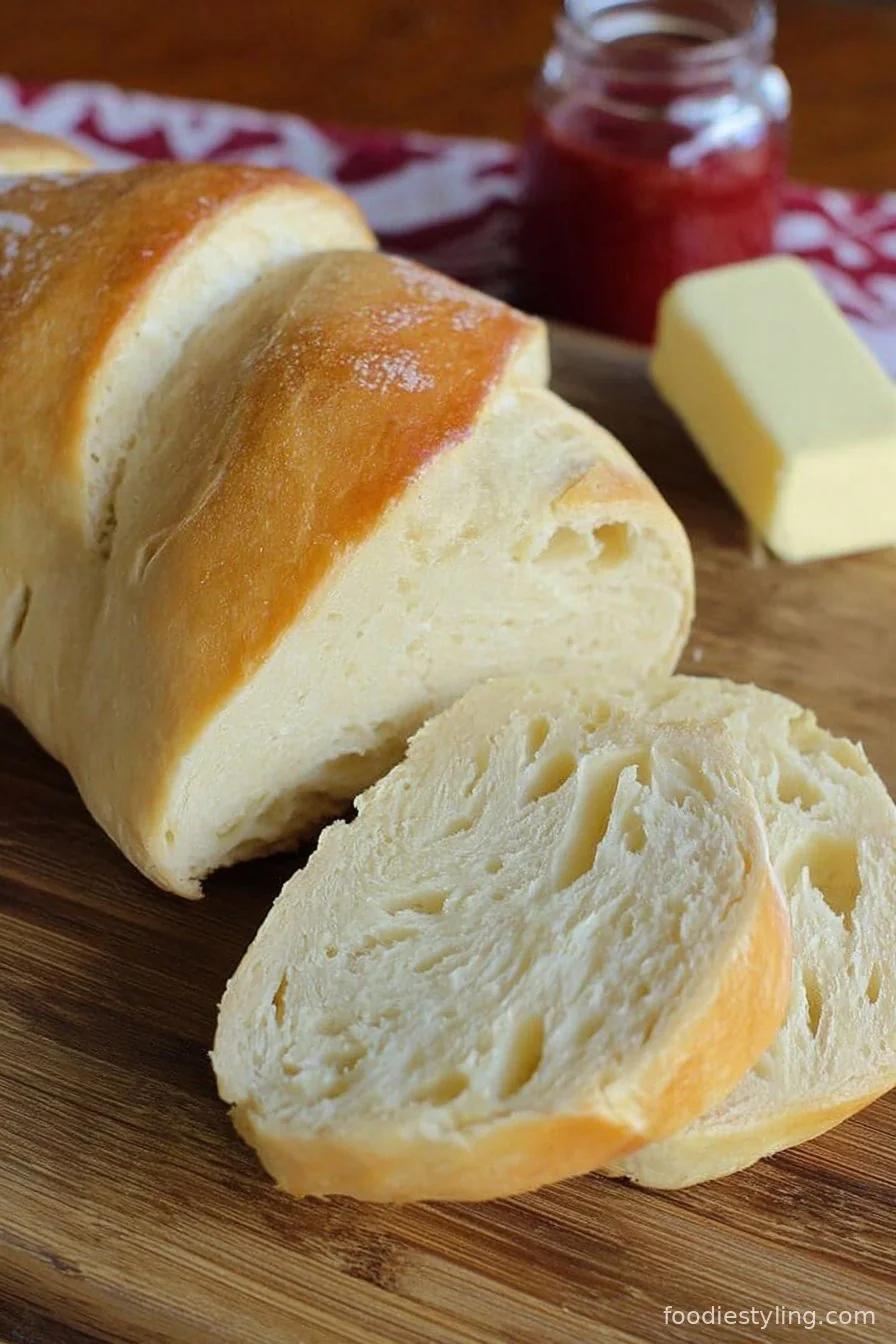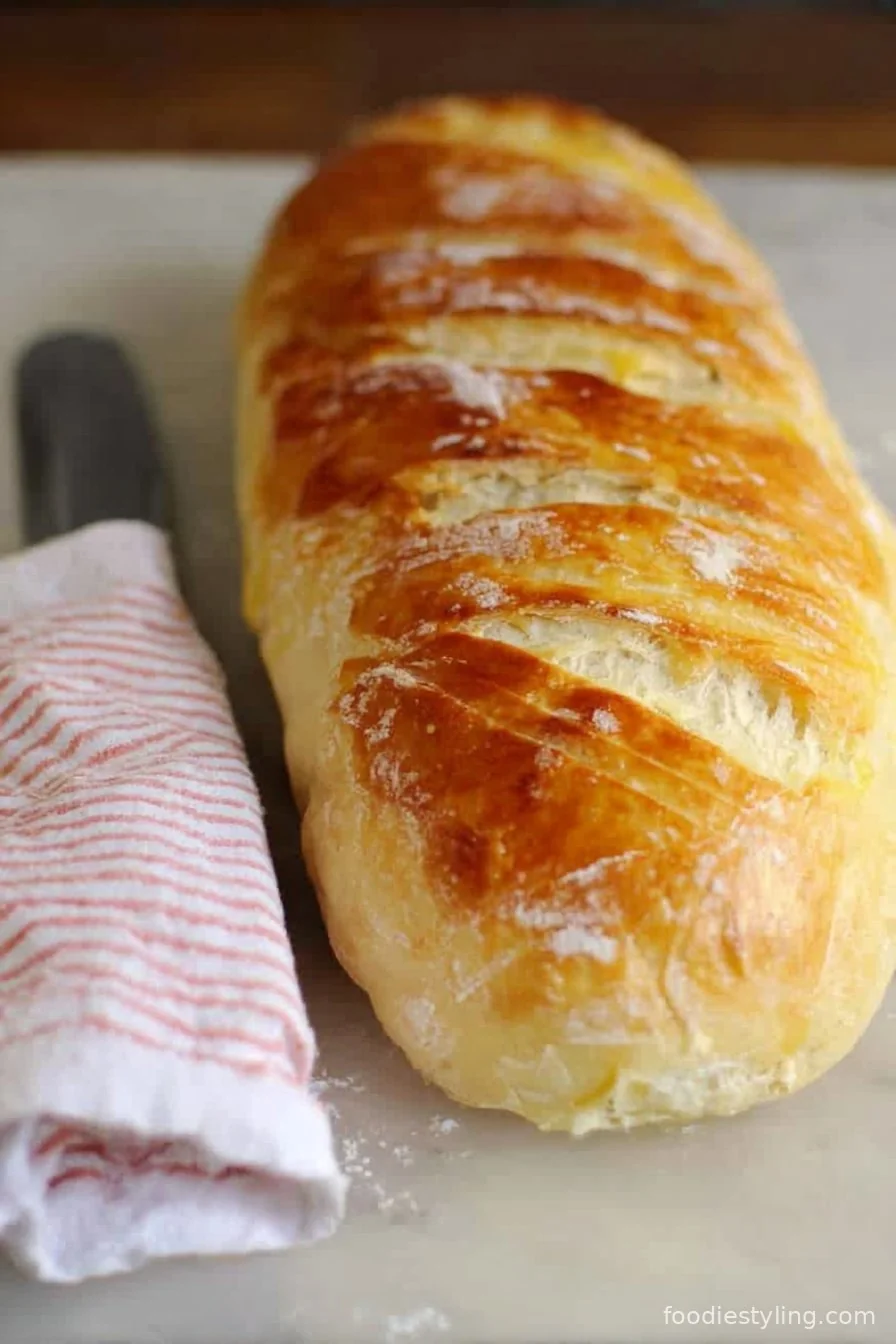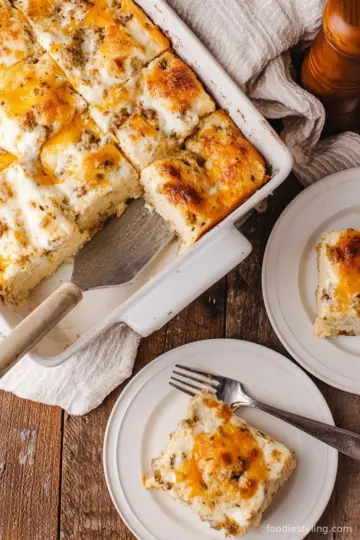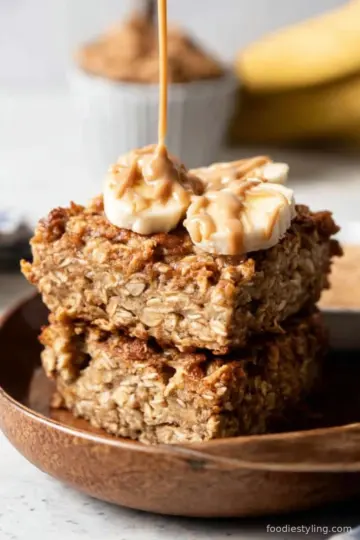Is there anything more satisfying than the aroma of fresh, warm bread straight from your own oven? This Homemade Bakery French Bread is absolutely irresistible with its crisp, golden crust and soft, airy interior. Every bite is just like the loaves from your favorite local bakeryâ€"only better, because you made it yourself!
This recipe is a must-try if you’re craving truly authentic French bread at home. It’s shockingly simple, requires no fancy equipment, and you’ll love the rewarding process. Whether you’re serving it with soup, making epic sandwiches, or just slathering on some butter, this bread will be the star of the meal.
I’ve baked this loaf countless times for family gatherings and holiday dinnersâ€"it never fails to impress and disappears in minutes. Trust me, once you try this homemade French bread, you’ll never look at store-bought the same way again!

Why You'll Love This Recipe
- Foolproof and approachable: Perfect for beginners or seasoned bakers, with easy-to-follow instructions and simple ingredients.
- Bakery-quality results at home: Achieve a perfectly crisp crust and soft, chewy crumb every single time.
- Versatile and crowd-pleasing: Pairs beautifully with everything from soups to sandwiches or as a showstopping dinner side.
- Budget-friendly and wholesome: Uses pantry staples, no preservatives, and costs a fraction of bakery loaves.
Key Ingredients for Homemade Bakery French Bread
See recipe card below for full list of measurements, ingredients, and instructions.Bread Flour
Bread flour is the backbone of this recipe, giving the loaf its signature chewy texture and beautiful rise. Opt for bread flour instead of all-purpose for the best structure and airy crumb. If you only have all-purpose, it will work, but the bread may be a bit softer and less chewy.
Active Dry Yeast
Yeast is what makes your bread rise, creating those lovely air pockets inside. Make sure your yeast is fresh and active for the best lift. You can use instant yeast in equal amounts, just skip the proofing step and mix it right into the flour.
Warm Water
Warm water wakes up the yeast and helps bind the dough. Make sure it’s warm to the touch (about 110°F), but not hot, or it can kill the yeast. If you prefer a slightly softer crust, you can use milk instead of water.
Sugar
A little sugar feeds the yeast and helps achieve a golden brown crust. Honey is a great substitute and adds a subtle floral note to the bread.
Olive Oil
Olive oil adds tenderness to the crumb and a hint of flavor. If you prefer, use melted butter or a neutral oil like canola.
Salt
Salt is essential for flavor and also helps control the yeast’s activity. Don’t skip it! If using kosher salt, add an extra pinch compared to table salt.

Instructions for Homemade Bakery French Bread
See recipe card below for full list of measurements, ingredients, and instructions.Proof the Yeast
Begin by combining the warm water, sugar, and yeast in a large mixing bowl. Stir gently and let it stand for 5 to 10 minutes, until the mixture is foamy. This is how you know your yeast is alive and ready to make magic!
Mix and Knead the Dough
Add the olive oil, salt, and 2 cups of bread flour to the yeast mixture. Stir until a shaggy dough forms, then gradually add the remaining flour, ½ cup at a time, until the dough is soft and only slightly sticky. Turn it out onto a lightly floured surface and knead for 8 to 10 minutes, until it’s smooth and springy. This step gives your bread that classic chewy texture.
First Rise
Place the dough in a lightly oiled bowl, cover it with plastic wrap or a damp towel, and let it rise in a warm place for about 1 hour, until doubled in size. If your kitchen is chilly, set the bowl near a sunny window or on top of a warm oven.
Shape the Loaf
Punch down the dough and turn it out onto a floured surface. Shape it into a long oval loaf, about 14 inches long. Transfer it to a baking sheet dusted with cornmeal to prevent sticking and give that authentic French bread feel.
Second Rise
Cover the loaf loosely with a towel and let it rest for 30 to 40 minutes, until noticeably puffy. Meanwhile, preheat your oven to 425°F (220°C).
Score and Glaze
Once risen, use a sharp knife or bread lame to make 3 to 4 diagonal slashes across the top. If you love a shiny, golden crust, brush the loaf with the optional egg wash.
Bake
Bake for 25 to 30 minutes, until the bread is deep golden brown and sounds hollow when tapped on the bottom. For an extra-crusty loaf, place a pan of water in the oven to create steam during the first 10 minutes of baking.
Cool and Enjoy
Let the bread cool on a wire rack for at least 20 minutes before slicing. This helps set the crumb and makes slicing easier (even though it’s hard to wait!).
Recipe Variations
Whole Wheat French Bread
Swap up to half of the bread flour for whole wheat flour for a nutty, wholesome twist. You may need to add a tablespoon or two of extra water to compensate for the whole wheat flour’s absorbency.
Herb-Infused Loaf
Mix a tablespoon of fresh chopped rosemary, thyme, or basil into the dough before rising for a fragrant herb bread that’s fantastic with soups and stews.
Vegan-Friendly
Skip the egg wash and use water or plant-based milk for brushing the loaf before baking. The bread itself is naturally vegan!
Cheesy French Bread
Before shaping your loaf, sprinkle in a half cup of shredded cheese (like cheddar or Gruyère) for a gooey, savory surprise inside.
Gluten-Free Adaptation
Try a 1:1 gluten-free bread flour blend in place of regular bread flour. The texture will be different, but you’ll still get a delicious homemade loaf.
Serving Suggestions
Homemade Bakery French Bread is incredibly versatile! Serve thick, warm slices alongside creamy soups, crisp salads, or classic pasta dishes for a comforting meal. It’s also perfect for sandwiches, garlic bread, or as the base for bruschetta. For a simple yet irresistible snack, enjoy it with salted butter or a drizzle of olive oil and a sprinkle of flaky sea salt.
Storage and Reheating
Store leftover French bread in a paper bag or wrapped loosely in a kitchen towel at room temperature for up to 2 days. For longer storage, slice and freeze in a resealable plastic bag for up to 2 months. Reheat slices in a 350°F oven for 5-7 minutes to refresh the crust, or pop them in the toaster for a quick crisp-up. Avoid refrigerating, as it dries out the bread faster.
Frequently Asked Questions About Homemade Bakery French Bread (FAQ)
Q: Can I make this bread ahead of time?A: Absolutely! Bake the loaf a day ahead and reheat in the oven for 7-10 minutes at 350°F before serving for a fresh-from-the-oven taste.
Q: Why is my bread dense instead of airy?A: Dense bread is usually caused by under-kneading, expired yeast, or not letting the dough rise long enough. Make sure to knead thoroughly and let your dough double in size during each rise.
Q: Can I use all-purpose flour instead of bread flour?A: Yes, you can substitute all-purpose flour, but the texture will be a bit softer and less chewy compared to classic French bread.
Baking your own Homemade Bakery French Bread is a truly rewarding experienceâ€"there’s nothing quite like the pride of slicing into your own golden, crusty loaf! If you give this recipe a try, I’d love to hear how it turned out. Leave a comment or rating below, and happy baking!
Ingredients
- 3 ½ cups bread flour (plus more for dusting)
- 1 packet (2 ¼ teaspoons) active dry yeast
- 1 ¼ cups warm water (about 110°F)
- 2 tablespoons olive oil
- 2 teaspoons sugar
- 1 ½ teaspoons salt
- 1 tablespoon cornmeal (for dusting the baking sheet)
- Optional: 1 egg white plus 1 tablespoon water (for egg wash)
Instructions
-
1In a large bowl, mix warm water, sugar, and yeast. Let stand for 5-10 minutes until foamy.
-
2Stir in olive oil, salt, and 2 cups of bread flour. Gradually add remaining flour, mixing until a soft dough forms.
-
3Turn out onto a floured surface and knead for 8-10 minutes, until dough is smooth and elastic.
-
4Place dough in a greased bowl, cover, and let rise in a warm spot for 1 hour, until doubled.
-
5Punch down dough and shape into a 14-inch long loaf. Place on a cornmeal-dusted baking sheet.
-
6Cover with a towel and let rise again for 30-40 minutes, until puffy.
-
7Preheat oven to 425°F (220°C). Score loaf with a sharp knife and brush with egg wash, if using.
-
8Bake 25-30 minutes until deep golden brown and hollow-sounding when tapped.
-
9Cool at least 20 minutes on a wire rack before slicing and serving.
Approximate Information for One Serving
Nutrition Disclaimers
Number of total servings shown is approximate. Actual number of servings will depend on your preferred portion sizes.
Nutritional values shown are general guidelines and reflect information for 1 serving using the ingredients listed, not including any optional ingredients. Actual macros may vary slightly depending on specific brands and types of ingredients used.
Did you make this recipe?
Please consider Pinning it!!




